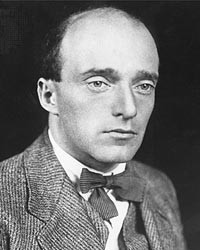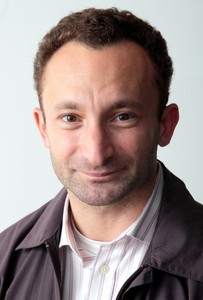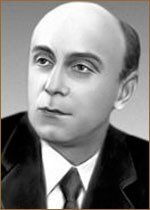
Erich Kleiber |
Eric Kleiber

“The career of Erich Kleiber is still far from the top, his prospects are unclear, and whether this chaotic man in his unparalleled development will reach the end is generally unknown,” wrote the German critic Adolf Weismann in 1825, clearly taken aback by the phenomenal rise of the artist, who by this time already served as “generalmusic director” of the Berlin State Opera. And rightly so, there was reason for criticism to fall into bewilderment when looking at Kleiber’s short but swift path. I was struck by the extraordinary courage of the artist, his determination and consistency in overcoming difficulties, in approaching new tasks.
A native of Vienna, Kleiber graduated from the Prague Conservatory and was hired as an assistant conductor at the local opera house. Here is what his younger colleague Georg Sebastian tells about the artist’s first independent step: “Once Erich Kleiber (at that time he was not yet twenty years old) had to replace a suddenly ill conductor of the Prague Opera in Wagner’s The Flying Dutchman. When he reached the middle of the score, it turned out that about fifteen pages of it were tightly glued together. Some of the envious people (theatrical scenes are often teeming with them) wanted to play a cruel joke with a talented young man. The envious, however, miscalculated. The joke didn’t work. The young conductor threw the score on the floor in frustration and performed the entire performance by heart. That memorable evening marked the beginning of the brilliant career of Erich Kleiber, who soon took pride of place in Europe next to Otto Klemperer and Bruno Walter. After this episode, Kleiber’s “track record” was replenished from 1912 with work at the opera houses of Darmstadt, Elberfeld, Düsseldorf, Mannheim, and, finally, in 1923 he began his activity in Berlin. The period when he was at the helm of the State Opera was a truly brilliant era in her life. Under the direction of Kleiber, the ramp was first seen here, many significant modern operas, including Wozzeck by A. Berg and Christopher Columbus by D. Milhaud, the German premieres of Jenufa by Janacek, works by Stravinsky, Krenek and other composers took place. But along with this, Klaiber also gave brilliant examples of the interpretation of classical operas, especially Beethoven, Mozart, Verdi, Rossini, R. Strauss and rarely performed works by Weber, Schubert, Wagner (“Forbidden Love”), Lorzing (“The Poacher”). And those who happened to hear the operettas of Johann Strauss under his direction, forever retained an unforgettable impression of these performances, full of freshness and nobility.
Not limited to work in Berlin, Kleiber at that time quickly won world fame, touring in all major centers of Europe and America. In 1927, he first came to the USSR and immediately won the sympathy of Soviet listeners. Works by Haydn, Schumann, Weber, Respighi were then performed in Kleiber’s programs, he conducted Carmen in the theater. One of the concerts the artist devoted entirely to Russian music – the works of Tchaikovsky, Scriabin, Stravinsky. “It turned out,” the critic wrote, “that Kleiber, in addition to being an excellent musician with excellent orchestral skills, has that feature that many celebrities lack: the ability to penetrate the spirit of a foreign sound culture. Thanks to this ability, Kleiber perfectly mastered the scores he had chosen, mastered them to such an extent that it seemed as if we were facing some outstanding Russian conductor on the stage.
Subsequently, Klaiber often performed in our country with various programs and invariably enjoyed well-deserved success. The last time he toured the USSR was in 1936, after he left Nazi Germany. Soon after, the artist settled in South America for a long time. The center of his activity was Buenos Aires, where Klaiber occupied the same prominent place in the musical life as in Berlin, regularly led performances at the Colon Theater and numerous concerts. Since 1943, he also worked in the capital of Cuba – Havana. And in 1948 the musician returned to Europe. The major cities literally fought to get Klaiber as a permanent conductor. But until the end of his life he remained a guest performer, performing all over the continent, participating in all significant music festivals – from Edinburgh to Prague. Kleiber repeatedly gave concerts in the German Democratic Republic, shortly before his death he conducted performances in his favorite theater – the German State Opera in Berlin, as well as in Dresden.
The light and life-loving art of Erich Kleiber is captured on many gramophone records; among the works recorded by him are the operas The Free Gunner, The Cavalier of the Roses and a number of major symphonic works. According to them, the listener can appreciate the best features of the artist’s talent – his deep insight into the essence of the work, his sense of form, the finest finishing of details, the integrity of his ideas and his ability to achieve their implementation.
L. Grigoriev, J. Platek





